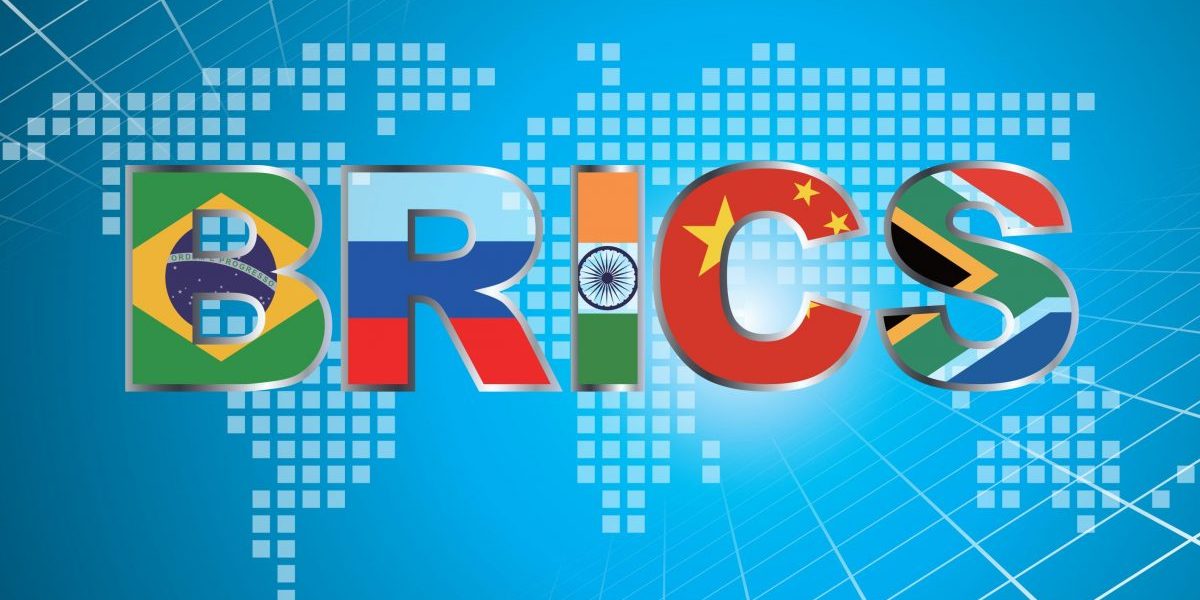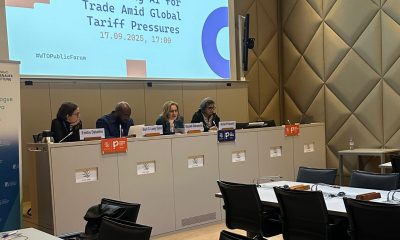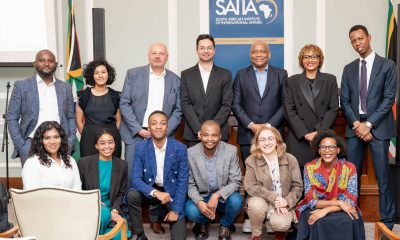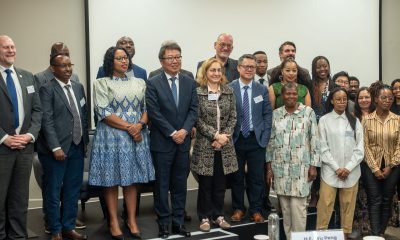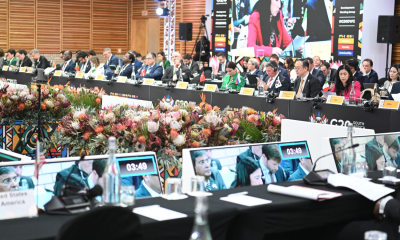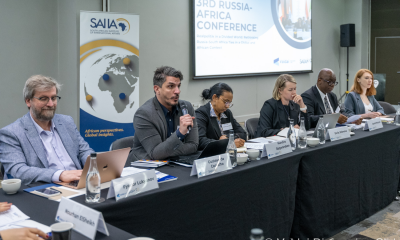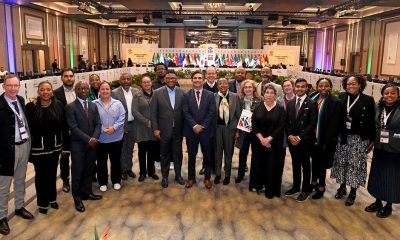“BRICS (Brazil, Russia, India, China and South Africa) group of countries has a special significance in the emerging global economic order and they are set of reshape the economic, trade and political future of the world,” said Wang Xinkui, President of the Shanghai WTO Consultation Center. He was speaking on the occasion of the launch of BRICS Trade & Economics Research Network (BRICS-TERN) in Shanghai on Saturday, the 19th of November 2011. Gong Baihua, Associate President of SCCWTO welcomed the participants to this meeting.
Drawing from the Sanya Declaration of BRICS Leaders Summit which was held in April 2011, five reputed policy research organisations came together to form this Track 2 initiative which will work on a range of issues on emerging global economic challenges and South-South cooperation.
They are Fundacao Getulio Vargas from Brazil, EcoAccord from Russia, CUTS International from India, Shanghai WTO Consultation Center from China, and South African Institute of International Affairs.
Speaking on the occasion, Pradeep Mehta, Secretary General of CUTS International said that in order to understand whether preferential trade agreements are building or stumbling blocks to multilateralism one needs to do deeper analysis of such agreements with which BRICS countries are engaged with and see the possibilities of multilateralising regional initiatives.
Shun Zhenyu, former Ambassador of China to the World Trade Organisation and Chairperson of the Standing Council of BRICS-TERN said that the initiative would like to upfront the relevance of the multilateral trading system. It would work on how to approach new issues and more common positions, he added.
At this launch meeting, the network members presented the respective country’s approach towards preferential trade agreements and lessons to be drawn so as to take forward bilateral integration to deeper regional integration to larger issues of South-South cooperation.
..//.. (Contd.)
Reacting to them, Faizel Ismail, Ambassador of South Africa to the WTO said that we have to recognise the role of trade in a country’s development, particularly in industrial capacity. “Different set of values are embedded into trade agreements; those lessons from like-minded countries should shared to draw conclusions for mainstreaming trade into development.”
G. K. Pillai, former Commerce Secretary of India and Chief Adviser to the Standing Council of BRICS-TERN reminded the group why the Doha Development Round of negotiations among the WTO members is not progressing toward its conclusion. “Drawing lessons from the Uruguay Round Agreement, developing countries got together to discuss development deficits in trade agreements and that has changed the dynamics of negotiations,” he said. He urged the group to conduct a structured campaign on characteristics of emerging economies and challenges therein.
Vera Thorstensen, Head of the Center on Global Trade of FGV, Brazil focused her presentation on rule-making process in preferential trade agreements, particularly in negotiating WTO plus rules. She said that the initiative should create an observatory on preferential trade agreements which will help the BRICS group to develop a new model to be different from either US or European Union models.
According to Olga Ponizova, Executive Director of EcoAccord, Russia is witnessing a period of deep transformation and the role of trade in sustainable development is emerging as a major issue. Initiatives like BRICS-TERN will help Russia in implementing its commitments as a newly acceded member of the World Trade Organisation. After more than a decade of negotiation, WTO Members will formally include Russia into the group at the forthcoming Ministerial Conference to be held in Geneva in December this year.
Bipul Chatterjee, Deputy Executive Director of CUTS International presented the lessons that India can draw from its engagements with preferential trade negotiations and the kind of work that BRICS-TERN can do in future. One of them is to look at the process of trade policy-making in respective countries and stakeholders’ involvement.
According to Feng Jun, Associate President of SCCWTO, China is putting equal emphasis on multilateral and bilateral cooperation. More than 19 percent of China’s trade is on account of preferential trade agreements. China considers the trans-pacific partnership initiative as one of its biggest challenges in future which will determine its trade relationship with the US.
Catherine Grant, Project and Programme Head of SAIIA’s Economic Diplomacy Programme explained how the South African government is developing a new model of preferential trade agreements with developing countries through extensive consultations with interest groups including community-based organisations. South Africa negotiated the Uruguay Round as a developed country and the situation has changed significantly. She underlined that other BRICS countries should learn from China’s success in using trade policy as a tool of industrial policy.
The next BRICS Leaders Summit will be held in New Delhi in March 2011. BRICS-TERN will meet before this Summit and present a set of recommendations on emerging issues of global economic governance and the role of BRICS countries. The group has also listed a set of issues on which its members will conduct policy research and advocacy in future. Capacity constraints among diverse set of stakeholders in understanding the role of trade in development also emerged as a major future areas of work of the group.
For more information, please contact:
Bipul Chatterjee, +919829285921, bc@cuts.org
Kshitiz Sharma, +919828889991, ks@cuts.org
|
Download: |

